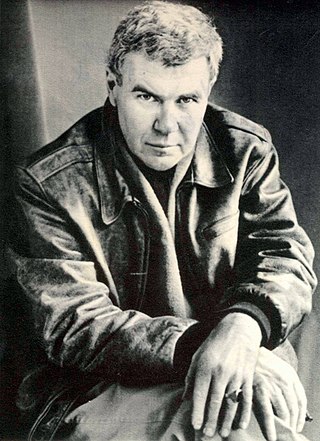
Raymond Clevie Carver Jr. was an American short story writer and poet. He contributed to the revitalization of the American short story during the 1980s.

The Informers is a collection of short stories, linked by the same continuity, written by American author Bret Easton Ellis. The collection was first published as a whole in 1994. Chapters 6 and 7, "Water from the Sun" and "Discovering Japan", were published separately in the UK by Picador in 2007. The stories display attributes similar to Ellis's novels Less than Zero, The Rules of Attraction, and, to a lesser extent, American Psycho. Like many of Ellis's novels, the stories are set predominantly in California.
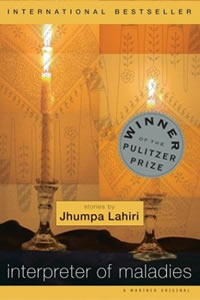
Interpreter of Maladies is a book collection of nine short stories by American author of Indian origin Jhumpa Lahiri published in 1999. It won the Pulitzer Prize for Fiction and the Hemingway Foundation/PEN Award in the year 2000 and has sold over 15 million copies worldwide. It was also chosen as The New Yorker's Best Debut of the Year and is on Oprah Winfrey's Top Ten Book List.
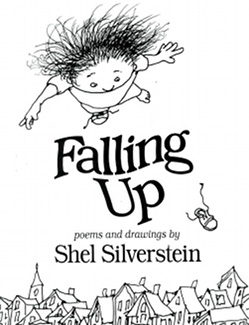
Falling Up is a 1996 poetry collection primarily for children written and illustrated by Shel Silverstein and published by HarperCollins. It is the third poetry collection published by Silverstein, following Where the Sidewalk Ends (1974) and A Light in the Attic (1981), and the final one to be published during his lifetime, as he died just three years after its release. Falling Up was the recipient of the Booklist Editors' Award in 1996.. In 2015, a special edition of the book was published, with 12 new poems.
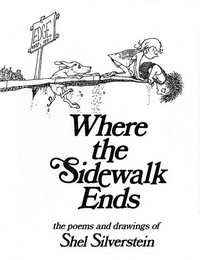
Where the Sidewalk Ends is a 1974 children's poetry collection written and illustrated by Shel Silverstein. It was published by Harper and Row Publishers. The book's poems address common childhood concerns and also present fanciful stories and imaginative images. Silverstein's work is valued by people of all ages, primarily due to his skill in subtly communicating social implications through his simple language. Controversial because of profanity and theme of rebellion, the book was first banned in 1986 in many libraries and schools.
Gordon Lish is an American writer. As a literary editor, he championed many American authors, particularly Raymond Carver, Barry Hannah, Amy Hempel, Rick Bass, and Richard Ford. He is the father of the novelist Atticus Lish.

Will You Please Be Quiet, Please? (1976) was the first major-press short-story collection by American writer Raymond Carver. Described by contemporary critics as a foundational text of minimalist fiction, its stories offered an incisive and influential telling of disenchantment in the mid-century American working class.
"The Hunt" is the 11th episode of the first season of the HBO original series The Wire. The episode was written by Joy Lusco from a story by David Simon and Ed Burns and was directed by Steve Shill. It originally aired on August 18, 2002.
"Cathedral" is a short story written by American writer and poet Raymond Carver. It was the first story written after finishing What We Talk About When We Talk About Love. It is the title story of a collection published in 1983: Cathedral.

Betrachtung is a collection of eighteen short stories by Franz Kafka written between 1904 and 1912. It was Kafka's first published book, printed at the end of 1912 in the Rowohlt Verlag on an initiative by Kurt Wolff.

What We Talk About When We Talk About Love is a 1981 collection of short stories by American writer Raymond Carver, as well as the title of one of the stories in the collection. Considered by many one of American literature's most ambitious short-story collections, it was this collection that turned Raymond Carver into a household name in the publishing industry.
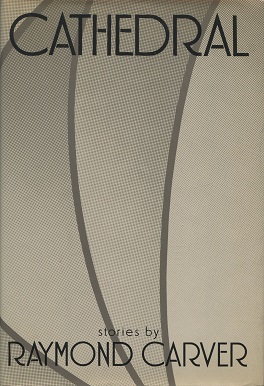
Cathedral is the third major-press collection of short stories by American writer Raymond Carver, published in 1983.

Elephant (1988) is the last collection of short stories by American writer Raymond Carver published in Great Britain. They were the final seven stories Carver wrote before his death, and only appeared as a separate book in England. In the United States, they were included as a section of Where I'm Calling From: New & Selected Stories (1988).
"Vitamins" is a short story by American author Raymond Carver. It was originally published in 1984, in his collection titled Cathedral.
"Little Things" is a short story by American writer Raymond Carver. It was originally titled "Mine", but was first published in What We Talk About When We Talk About Love under the title "Popular Mechanics." It was then republished with the title "Little Things" in Carver's 1988 collection Where I’m Calling From: New and Selected Stories.
The bibliography of Raymond Carver consists of 72 short stories, 306 poems, a novel fragment, a one-act play, a screenplay co-written with Tess Gallagher, and 32 pieces of non-fiction. In 2009 the 17 stories collected in What We Talk About When We Talk About Love were published in their manuscript form, prior to Gordon Lish's extensive editing, under the title Beginners.

What We Talk About When We Talk About Anne Frank is a 2012 short story collection by the American writer Nathan Englander. The book was first published on February 7, 2012 through Knopf and collects eight of Englander's short stories, including the title story "What We Talk About When We Talk About Anne Frank."

Black Tickets (1979) is a collection of short stories by American writer Jayne Anne Phillips. The collection was published by Delacorte Books/Seymour Lawrence. In 1980, it won the inaugural Sue Kaufman Prize for First Fiction.
Revenge: Eleven Dark Tales is a collection of interconnected short stories by Yōko Ogawa. It was published in Japan in 1998, and in the United States by Picador in 2013. Stephen Snyder translated the book into English.
"Car Crash While Hitchhiking" is a work of short fiction by the American writer Denis Johnson based on a real incident in Johnson's life. The story was first published in The Paris Review in 1989 and collected in the 1990 edition of The Best American Short Stories. "Car Crash While Hitchhiking" is the opening story in Johnson's short story collection Jesus' Son (1992).











